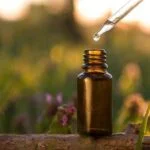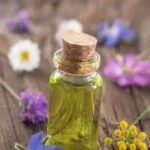Lavender essential oil has long been celebrated for its soothing and calming properties, making it a popular choice in aromatherapy. The gentle and pleasant aroma of lavender has a profound influence on our senses and emotions, offering numerous benefits for both the body and mind.
In this article, we will delve into the world of lavender essential oil aromatherapy, exploring its history, therapeutic properties, and practical applications. Whether you are seeking stress relief, better sleep, improved mood, pain relief, or skincare benefits, lavender oil can be a powerful tool in promoting overall well-being.
From ancient times to modern use, lavender essential oil holds a rich history that spans across civilizations. Its origins can be traced back to ancient Egypt where it was used in perfumes and cosmetics. Lavender oil gained popularity during the Roman Empire due to its healing properties.
Over the centuries, it became a staple in traditional medicine practices in countries like France and England. Today, with advancements in technology and research, lavender essential oil continues to captivate people around the world for its versatile applications.
Aromatherapy is the practice of using essential oils extracted from plants to promote physical and psychological well-being. When it comes to lavender essential oil aromatherapy specifically, its mechanism of action revolves around the volatile molecules that interact with our olfactory system.
These molecules can affect our limbic system – the part of our brain responsible for emotions and memories – through inhalation or absorption into the bloodstream via topical application. By harnessing the power of scent and touch, lavender essential oil offers a holistic approach to achieving balance and calmness in our everyday lives.
In this comprehensive exploration of lavender essential oil aromatherapy benefits, we will uncover how this remarkable natural remedy can help alleviate stress and anxiety. We will also discuss how it aids in improving sleep quality by creating an environment conducive to relaxation. Furthermore, we will delve into how inhaling the delightful fragrance of lavender oil can boost mood and alleviate symptoms of depression.
Additionally, we will examine its potential for providing natural pain relief and explore its skincare and haircare benefits. Finally, we will provide practical tips on how to use lavender essential oil safely and effectively to maximize its therapeutic effects. So, let’s embark on this aromatic journey together and embrace the healing influence of lavender essential oil aromatherapy.
History and Origins of Lavender Essential Oil
Lavender is a flowering plant that has been used for centuries for its medicinal and aromatic properties. The history and origins of lavender essential oil can be traced back to ancient times, where it was valued for its therapeutic benefits. Egyptians, Greeks, and Romans all recognized the healing power of lavender and used it in various forms.
In ancient Egypt, lavender was often used in the mummification process due to its preservation qualities. The Egyptians also believed that lavender had calming effects on the mind and body, making it a popular ingredient in perfumes and cosmetics. In Greece, lavender was known as “nardus” or “spikenard” and was highly regarded for its soothing scent. It was commonly used in baths to promote relaxation and relieve stress.
During the Roman era, lavender became widely used for its medicinal properties. It was employed to treat common ailments such as digestive issues, headaches, and insomnia. Lavender oil was also utilized as an antiseptic agent during wars to disinfect wounds. The Romans appreciated these benefits so much that they named the plant “lavare,” which means “to wash.” This name reflects both its cleansing properties and its use in washing clothes and houses.
Lavender’s popularity continued throughout history, spreading across Europe and Asia. In medieval Europe, it was incorporated into sachets to repel insects and reduce odors due to its strong aroma. Lavender also played a significant role during the Renaissance period when people believed it could protect against the bubonic plague.
Today, lavender essential oil remains one of the most popular essential oils worldwide due to its wide range of uses. From ancient times to modern-day usage, this fragrant flower has captivated people with its enchanting scent and extraordinary benefits for health and well-being.
Unordered list:
- Lavender has been used since ancient Egyptian times for mummification purposes.
- The Greeks cherished lavender for its calming effects on the mind and body.
- Romans recognized the medicinal properties of lavender and used it for various ailments.
Ordered list:
- Ancient Egyptians used lavender for mummification and believed it had calming effects on the mind and body.
- The Greeks valued lavender’s soothing scent, using it in baths for relaxation.
- Romans utilized lavender for medicinal purposes such as treating digestive issues and disinfecting wounds.
Understanding Aromatherapy
Aromatherapy is a popular alternative therapy that utilizes essential oils to promote physical and psychological well-being. Understanding how essential oils work on the senses and emotions is key to fully harnessing the benefits of this therapy.
Essential oils, including lavender oil, are highly concentrated plant extracts that capture the natural aroma and therapeutic properties of plants. When inhaled, these oils stimulate the olfactory system, which is responsible for our sense of smell. The olfactory system is directly connected to the limbic system in our brain, which plays a crucial role in regulating emotions, memories, and behaviors.
In aromatherapy, the inhalation of essential oils triggers responses in the limbic system, influencing various emotional and physiological functions. Lavender essential oil specifically has been shown to have calming effects on the nervous system, reducing anxiety and promoting relaxation. Research has also indicated that lavender aroma can enhance mood, reduce irritability, and alleviate symptoms of depression.
In addition to its effects on emotions and mood, aromatherapy with lavender essential oil can also have physical benefits. Some studies suggest that lavender aroma may help lower blood pressure and heart rate, promoting overall cardiovascular health. It can also have analgesic properties, providing natural pain relief for headaches or muscle tension.
Understanding how essential oils interact with our senses and emotions allows us to harness the full potential of aromatherapy for holistic well-being. Whether it’s using lavender oil to promote relaxation or improve mood, incorporating aromatherapy into your self-care routine can be a powerful tool for enhancing overall health and wellness.
| Benefits | Lavender Essential Oil Aromatherapy |
|---|---|
| Reduces anxiety | Yes |
| Promotes relaxation | Yes |
| Enhances mood | Yes |
| Alleviates symptoms of depression | Yes |
| Lowers blood pressure and heart rate | Possible |
| Provides natural pain relief | Possible |
Therapeutic Properties of Lavender Essential Oil
Antioxidant Properties
One of the key therapeutic properties of lavender essential oil is its antioxidant activity. Antioxidants are substances that can prevent or slow damage to cells caused by free radicals, which are unstable molecules that can contribute to chronic diseases and aging. Lavender oil contains compounds such as linalool and linalyl acetate, which have been found to possess strong antioxidant properties. These antioxidants help protect the body’s cells from oxidative stress and reduce inflammation.
Anti-inflammatory Effects
In addition to its antioxidant properties, lavender essential oil also exhibits potent anti-inflammatory effects. Chronic inflammation is a contributing factor in many health conditions, including arthritis, cardiovascular disease, and certain types of cancer. Research has shown that the compounds present in lavender oil can inhibit inflammatory processes by reducing the production of pro-inflammatory molecules in the body. This makes it a valuable natural remedy for managing inflammation-related symptoms and potentially preventing chronic diseases.
Anxiolytic and Sedative Qualities
Lavender essential oil is widely known for its calming and soothing effects on the mind and body. The aroma of lavender has been used for centuries to induce relaxation and alleviate anxiety.
Studies have suggested that inhalation or topical application of lavender essential oil can decrease anxiety levels, improve mood, and promote better sleep quality. The anxiolytic (anti-anxiety) and sedative qualities of lavender oil are believed to be attributed to its ability to modulate brain activity by interacting with neurotransmitters such as gamma-aminobutyric acid (GABA), which contributes to feelings of relaxation.
Overall, the therapeutic properties of lavender essential oil make it a versatile tool for promoting overall well-being. Its antioxidant activity helps combat oxidative stress, while its anti-inflammatory effects can assist in managing various inflammatory conditions. Additionally, its anxiolytic and sedative qualities provide relief from stress, anxiety, and sleep disturbances. By harnessing these powerful properties, lavender essential oil offers a natural and holistic approach to promoting health and enhancing the quality of life.
Stress and Anxiety Relief
Lavender essential oil has long been praised for its ability to provide calming and relaxing effects on the mind and body. The use of lavender aromatherapy can be a powerful tool in relieving stress and anxiety, promoting a sense of calmness, and inducing relaxation.
One of the main reasons why lavender essential oil is effective in reducing stress and anxiety is its impact on the nervous system. When inhaled, the scent of lavender stimulates the olfactory system, which then sends signals to the brain’s limbic system – the area that controls emotions and memories. This triggers a relaxation response in the body, helping to calm the mind and reduce feelings of tension.
There are various ways to incorporate lavender aromatherapy into your daily routine for stress relief. Here are a few practical applications:
- Diffuser: Add a few drops of lavender essential oil to a diffuser filled with water and let it disperse throughout your space.
- Bath: Create a soothing bath by adding several drops of lavender oil to warm water before soaking.
- Pillow Spray: Spritz your pillow with a lavender-infused spray before bedtime to promote relaxation and better sleep.
In addition to its calming effects on stress and anxiety, lavender aromatherapy can also help relieve restlessness and promote better sleep quality. It has been shown to improve both sleep duration and overall sleep satisfaction. Incorporating lavender essential oil into your nighttime routine can help create a tranquil environment conducive to deep, restful sleep.
Overall, utilizing lavender aromatherapy as part of your self-care routine can provide significant benefits for stress relief, anxiety reduction, and relaxation. However, it is important to note that while generally considered safe for most individuals, some people may have allergies or sensitivities to essential oils.
It is always recommended to perform a patch test before using any new product on your skin or inhaling it. Additionally, if you have any underlying medical conditions or are pregnant or nursing, it is best to consult with a healthcare professional before incorporating lavender essential oil into your wellness routine.
Enhancing Sleep Quality
Lavender Essential Oil is well-known for its ability to enhance sleep quality and promote a good night’s rest. Its soothing and relaxing properties make it an effective tool for those struggling with sleep disorders or occasional difficulties falling asleep.
Numerous studies have shown the positive effects of lavender aromatherapy on sleep quality. A study published in the journal Evidence-Based Complementary and Alternative Medicine found that inhalation of lavender essential oil significantly improved various aspects of sleep, including increased sleep duration, reduced wakefulness during the night, and improved overall satisfaction with sleep. Another study published in the British Journal of General Practice demonstrated that lavender aromatherapy was effective in improving sleep quality in individuals with insomnia.
So how does lavender oil work to enhance sleep? It is believed that the compounds present in lavender essential oil interact with neurotransmitters involved in the regulation of sleep. Linalool, one of the main components of lavender oil, has been found to have sedative effects by increasing the production of calming neurotransmitters such as GABA (gamma-aminobutyric acid) in the brain.
To harness the power of lavender oil for better sleep, there are several ways to incorporate it into your bedtime routine. One popular method is to use a diffuser or vaporizer to fill your bedroom with the calming scent of lavender before going to bed. Alternatively, you can add a few drops of lavender essential oil to a warm bath or mix it with a carrier oil such as coconut or jojoba oil for a soothing massage before bedtime.
| Study | Findings |
|---|---|
| Evidence-Based Complementary and Alternative Medicine | Lavender inhalation improved sleep duration, reduced wakefulness at night, and improved overall satisfaction with sleep. |
| British Journal of General Practice | Lavender aromatherapy was effective in improving sleep quality in individuals with insomnia. |
Boosting Mood and Alleviating Depression
Many people struggle with mood disorders such as depression and anxiety, and finding effective treatments can be a challenge. However, lavender essential oil aromatherapy has been found to have significant psychological benefits in alleviating these conditions. In this section, we will explore how lavender aromatherapy can boost mood and provide relief from depression.
Understanding Depression: A Complex Mental Health Condition
Depression is a common mental health condition characterized by persistent feelings of sadness, hopelessness, and a loss of interest or pleasure in activities. It can significantly impact one’s quality of life and overall well-being. While there are various treatment options available for depression, many individuals seek alternative or complementary therapies to supplement their existing treatments.
Lavender Aromatherapy: Promoting Relaxation and Mood Improvement
Lavender essential oil has long been cherished for its calming scent, but its benefits go beyond just relaxation. Research suggests that the aroma of lavender can have a positive impact on the brain and promote emotional well-being. When inhaled through aromatherapy, lavender oil interacts with the limbic system, which is the part of our brain responsible for emotions and memories.
Studies have demonstrated that inhaling lavender essential oil can help regulate mood by increasing levels of neurotransmitters such as serotonin and dopamine, which play a crucial role in mood regulation. This mechanism may explain why many individuals experience an upliftment in their mood after using lavender aromatherapy.
A Natural Remedy for Anxiety-Related Symptoms
Anxiety often coexists with depression, and lavender aromatherapy has shown promising results in alleviating anxiety-related symptoms as well. Inhaling the soothing scent of lavender essential oil has been found to reduce levels of stress hormones like cortisol while promoting a sense of calmness. This calming effect can help individuals manage symptoms of anxiety more effectively and improve their overall well-being.
Natural Pain Relief
Understanding Pain Relief with Lavender Essential Oil
Lavender essential oil has long been revered for its calming and soothing properties, but did you know that it can also provide natural pain relief? When used topically or inhaled through aromatherapy, lavender oil can help alleviate aches and pains throughout the body. Its analgesic and anti-inflammatory properties make it a popular choice for those seeking holistic alternatives to over-the-counter pain medications.
Reducing Inflammation and Discomfort
One of the key ways lavender essential oil aids in pain relief is by reducing inflammation. Its anti-inflammatory compounds can help soothe irritated tissues and joints, providing relief from conditions such as arthritis, muscle soreness, and sprains. When massaged into the affected area, lavender oil promotes blood circulation, which enhances the healing process and reduces pain.
In addition to reducing inflammation, lavender essential oil also acts as a mild analgesic. The molecules in lavender interact with receptors in the brain and nervous system that control pain perception. This interaction helps block pain signals from reaching the brain, leading to a decrease in discomfort.
Using Lavender Essential Oil for Pain Relief
There are several ways to incorporate lavender essential oil into your pain management routine. One popular method is to create a soothing massage blend by mixing a few drops of lavender oil with a carrier oil like coconut or almond oil. Gently massage this blend onto the affected area using circular motions until it absorbs into the skin.
Another effective way to use lavender essential oil for pain relief is through inhalation methods such as diffusing or steam inhalation. By adding a few drops of lavender oil into a diffuser or inhaling steam infused with lavender, you can experience not only relaxation but also reduction in pain levels.
While lavender essential oil is generally considered safe for external use, it’s important to note that some individuals may have allergic reactions or sensitivities. It’s always advisable to perform a patch test on a small area of skin before applying it liberally. Additionally, if you have any underlying medical conditions or are taking medications, it’s best to consult with a healthcare professional before incorporating lavender essential oil into your pain relief routine.
Skincare and Haircare Benefits
Lavender Essential Oil is not only beneficial for relaxation and mental well-being, but it also offers numerous skincare and haircare benefits. When utilized properly, lavender oil can help improve the health and appearance of your skin and hair.
One of the main skincare benefits of lavender essential oil is its ability to soothe and heal various skin conditions. Its anti-inflammatory properties make it effective in reducing redness, swelling, and irritation caused by acne, eczema, and psoriasis. Additionally, lavender oil has antimicrobial properties that can help prevent infection and promote faster healing of wounds and minor cuts. It can also be used to alleviate the discomfort associated with insect bites or stings.
When it comes to haircare, lavender essential oil can stimulate hair growth and prevent hair loss. Massaging diluted lavender oil onto the scalp can increase blood circulation, promoting healthy hair follicles and encouraging new growth. Furthermore, lavender oil helps balance natural sebum production on the scalp, reducing dandruff and preventing greasy or dry scalp conditions.
To fully harness these skincare and haircare benefits, here are some practical tips for utilizing lavender essential oil:
- For skincare: Dilute a few drops of lavender oil with a carrier oil such as coconut or jojoba oil before applying it directly on your skin. Alternatively, you can add a few drops of lavender essential oil to your favorite moisturizer or face mask for added nourishment.
- For haircare: Mix a few drops of lavender essential oil with a carrier oil such as almond or olive oil. Massage the mixture onto your scalp before shampooing your hair. Alternatively, you can add a few drops of lavender oil to your shampoo or conditioner for an invigorating boost.
- If you have sensitive skin or are prone to allergies, perform a patch test before using lavender essential oil topically to ensure you don’t experience any adverse reactions.
With its numerous skincare and haircare benefits, utilizing lavender essential oil can help improve the health and appearance of your skin and hair. Whether you’re looking to address specific skin issues or simply want to enhance your natural beauty, lavender oil is a versatile and soothing option to consider.
Practical Application and Safety Considerations
When using lavender essential oil for aromatherapy, it is important to follow proper application techniques and consider safety precautions. Here are some tips to ensure you can enjoy the benefits of lavender oil safely and effectively:
- Dilute properly: Essential oils are highly concentrated and should always be diluted before use. The general recommended dilution ratio for lavender essential oil is 2-3 drops per teaspoon of carrier oil, such as coconut or almond oil. This ratio can vary depending on the individual’s sensitivity, so it’s best to start with a lower dilution and adjust as needed.
- Patch test before use: Before applying lavender oil to a larger area of your skin, it is advisable to conduct a patch test. Apply a small amount of diluted lavender oil to a small area of skin, like the inside of your forearm, and wait for 24 hours to check for any adverse reactions such as redness or irritation.
- Inhalation methods: There are various ways to inhale lavender essential oil for its aromatherapy benefits. You can add a few drops of the oil to a diffuser or humidifier, allowing the scent to disperse throughout the room.
Alternatively, you can place a couple of drops on a tissue or cotton ball and inhale directly. Another option is to add a few drops into a bowl of hot water, covering your head with a towel and inhaling the steam. - Steam inhalation caution: While steam inhalation can be an effective way to experience the benefits of lavender aromatherapy, it is important to exercise caution when using this method. Ensure that the water is not too hot to avoid burning your face or causing discomfort. Also, keep your eyes closed during steam inhalation to prevent any irritation.
| Tips for Using Lavender Essential Oil Aromatherapy Properly |
|---|
| – Dilute properly: 2-3 drops of lavender oil per teaspoon of carrier oil. |
| – Patch test before use to check for any adverse reactions. |
| – Inhalation methods include using a diffuser, tissue, or steam inhalation. |
| – Exercise caution during steam inhalation to avoid burning or eye irritation. |
Remember, these tips are general guidelines and it is always advisable to consult with a healthcare professional or aromatherapist if you have any specific concerns or medical conditions. By using lavender essential oil with proper care and consideration, you can experience the wonderful benefits of this versatile essential oil in your aromatherapy practice.
Conclusion
In conclusion, lavender essential oil aromatherapy offers a wide range of benefits for both the mind and body. Its soothing power has been recognized for centuries, with lavender being used in various forms throughout history. From ancient times to modern use, this versatile oil continues to provide therapeutic properties that promote relaxation, reduce stress and anxiety, improve sleep quality, boost mood, alleviate depression, relieve pain, and even enhance skincare and haircare.
One of the key benefits of lavender aromatherapy is its ability to provide stress and anxiety relief. The calming properties of lavender oil have been scientifically studied and proven effective in reducing feelings of tension and promoting relaxation. By inhaling the gentle scent of lavender essential oil, individuals can experience a sense of calmness that helps them unwind after a long day.
Another significant benefit of lavender aromatherapy is its potential to enhance sleep quality. Many people struggle with insomnia or have difficulties falling asleep at night. Lavender essential oil has been shown to improve sleep by promoting relaxation and reducing anxiety before bedtime. Incorporating lavender oil into a bedtime routine can create a peaceful atmosphere that encourages a restful night’s sleep.
Furthermore, the psychological benefits of lavender aromatherapy extend beyond stress relief and improved sleep. Lavender oil has been found to boost mood and alleviate symptoms of depression. Its pleasant scent is known for its uplifting qualities, providing individuals with an overall sense of well-being and emotional balance.
In addition to its mental health benefits, lavender essential oil also offers natural pain relief properties. When applied topically or used in massage therapy, it can help soothe aches and pains caused by muscle soreness or tension headaches. This makes it an excellent option for those looking for holistic alternatives to traditional pain medications.
Moreover, lavender oil can be utilized for skincare and haircare purposes as well. Its antimicrobial properties make it effective in treating acne-prone skin or scalp conditions such as dandruff. Additionally, lavender oil can contribute to healthy hair growth and enhanced overall hair health.
To ensure safe and effective use of lavender essential oil aromatherapy, it is important to follow practical application guidelines and consider safety precautions. This includes diluting the oil, conducting a patch test for skin sensitivity, and consulting with a healthcare professional if you have any underlying health conditions or are pregnant.
Frequently Asked Questions
Is breathing lavender oil good for you?
Breathing lavender oil can have potential benefits for some individuals. Lavender oil is known to have calming properties and is commonly used in aromatherapy to promote relaxation and reduce stress. Inhaling the scent of lavender oil may help to soothe anxiety and improve sleep quality.
Some studies indicate that lavender oil can also contribute to reducing symptoms of headaches and migraines. However, it’s essential to note that individual responses to aromatherapy can vary, and not everyone may experience the same effects. Additionally, it’s important to consult with a healthcare professional before using any essential oils for therapeutic purposes, as they can interact with certain medications or cause allergic reactions in some individuals.
How does lavender aromatherapy work?
Lavender aromatherapy works through the inhalation of lavender essential oil molecules. When breathed in, these molecules stimulate the olfactory system, which includes the nose and brain areas responsible for processing smells (such as the limbic system). The scent of lavender can trigger a series of neurochemical responses that help promote relaxation and calmness.
The aroma interacts with receptors in the brain, influencing emotions and mood regulation. This process may lead to reduced feelings of anxiety, increased relaxation, improved sleep quality, and alleviation of stress-related symptoms.
What does lavender scent do to the body?
The scent of lavender has various effects on the body due to its impact on the nervous system. When inhaling lavender aroma or applying it topically, research suggests that it can potentially lower heart rate and blood pressure while inducing a state of relaxation. Lavender’s aromatic molecules stimulate neurotransmitters like serotonin and dopamine, which are involved in mood regulation and promoting a sense of well-being.
These neurotransmitters facilitate mental calmness while reducing anxiety levels. Furthermore, when used in products like lotions or bath oils applied directly onto the skin, lavender scent might also provide mild analgesic properties by helping ease muscle tension or soreness when massaged into affected areas. Overall, lavender scent offers a calming and soothing effect on the body and mind, making it a popular choice in aromatherapy.

Are you looking for a natural way to improve your health and wellbeing?
If so, aromatherapy may be the answer for you.





